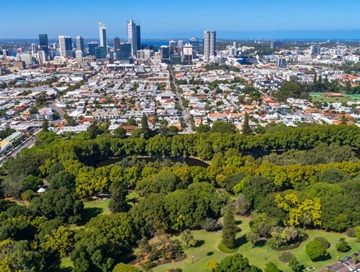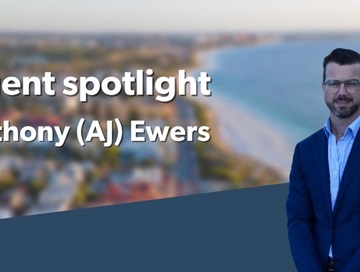The REIWA Information Service has been helping the public with their real estate queries since 1992, assisting buyers, sellers, tenants and landlords navigate their property journeys. This valuable service allows members of the WA public dealing with a REIWA agent to find answers to their real estate queries and concerns.
Last year, more than 20,000 phone calls were placed to the REIWA Information Service, with West Australians seeking clarification and assistance from the REIWA on a wide range of real estate matters.
Of the 20,000 calls received by our information officers, 66 per cent of all calls were made by tenants and landlords.
We've compiled the eight most common questions the REIWA Information Service received from tenants and answered them for you.
1. What do I do if my rental has a leaking water pipe?
Report the leak to the property manager as soon as possible, firstly by verbal communication then it is good to follow it up in writing with an email.
Is it then the responsibility of the lessor to fix the problem as soon as possible. The extent of the damage may affect the tenants ability to reside at the premises, especially if the water supply needs to be cut off. This should be communicated soundly between all parties.
2. If there is more than one tenant, what happens if one tenant wants to leave and another person wants to become a tenant?
Make an application to the lessor through the managing agent. If the lessor agrees, the property manager will co-ordinate the change - either a new lease will be prepared or a variation to the existing lease.
If the lessor does not agree, the person will remain as a tenant and continue to be responsible for the tenancy including paying the rent. All tenants will be jointly and severally responsible for the rent and the upkeep of the property.
3. Is my lease affected if my rented home is within a bushfire prone zone?
Firstly, you can check to see if your home is in a bushfire prone zone by going onto the Department of Fire and Emergency Services website.
But no, your lease will not be affected. Being within a zone mainly affects the type of structure that an owner can build. However, you should still take safety precautions to reduce the risk of fire affecting the premises and in turn your possessions.
You can request that the lessor remove any leaves from any gutters and seek permission to remove vegetation that is too close to the property. It is very important to ensure that you have a plan of attack of what to do if there is a fire.
4. When should the final property condition report be received?
The Residential Tenancies Act places a statutory obligation upon the lessor to prepare and provide the tenant with the final report within 14 days of the termination. The termination date may not necessarily be the date when the tenant actually moves out of the premises.
5. Can I pay my rent by cash payments?
The lessor's agent will provide at least one payment method that does not incur costs but that may or may not include cash. A lessor should communicate the method of payment at the start of the rental agreement.
Ultimately, it is up to the lessor if they want to receive cash payments however, many are reluctant to receive cash payments because this provides issues as to how the cash will be stored and then transported to a bank.
6. What happens if one of my co-tenants does not pay their share of the rent?
The agreed rent has to be paid in full by the agreed date. All tenants are responsible for rent payment. If one person does not pay their share, then the other people have to make up the shortfall.
7. What are my parking rights in a strata complex?
Your parking rights should would normally be discussed during the negotiations to enter into the lease. If the lot does have parking, then the property manager should clearly describe how many parking bays you're entitled to and the location of those parking bays.
Normally, parking your car in any other location is not permitted. Visitor parking is normally solely for visitors and not for occupants.
8. I can see mould on the ceiling, is this a problem?
In some instances mould can be a health issue and you should contact the lessor's property manager and describe the problem.
Mould has a higher probability to grow if the building does not have adequate ventilation or the occupant does not adequately ventilate the property.
Ventilation can be enhanced by turning on exhaust fans, particularly when bathing, showering, cooking, doing laundry and drying clothes.
Opening windows when weather permits, to improve cross ventilation is also very important.
Do you have a question regarding your rental situation? Contact the REIWA Information Service from Monday to Friday on 9380 8222 or email infoservice@reiwa.com.au.
.tmb-imgwidgetm.jpeg?sfvrsn=6fcfcf1d_1)




.tmb-rcarousel.png?sfvrsn=b7e87578_1)




